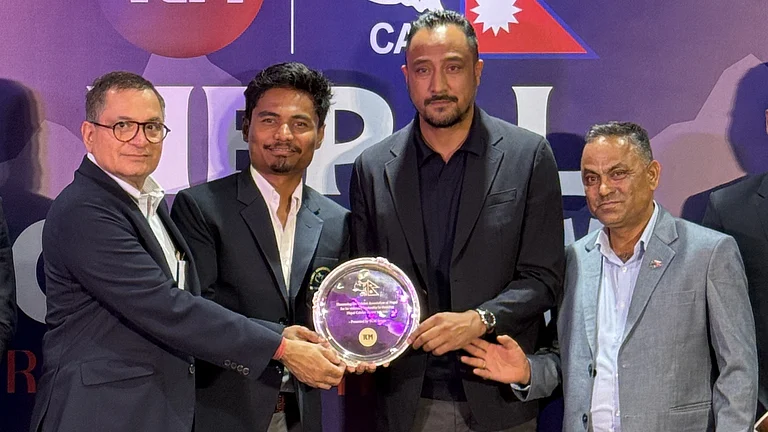The communal frenzy that ripped apart Delhi early this year before the pandemic came as an absurd reprieve appalled many. Understandably so, because to outsiders, Delhi remains a symbol of power, affluence and culture. Its poverty and squalor, toiling migrants, or its undercurrents of bigotry have often been walled up. Much like the bamboo curtains that sought to hide the city’s slums during the Commonwealth Games. It is this scarred face of the capital that M. Mukundan chooses to reveal in his novel Delhi: A Soliloquy. Beautifully translated from the Malayalam original Delhi Gadhakal by Fathima E.V. and Nandakumar K., it dives deep into the Delhi of the 1960s through the ’80s, giving us insights into the lives of the Malayali diaspora and the epochal events that shaped the city.
As cultural attaché at the French embassy in the early ’60s, Delhi was Mukundan’s home for over four decades. Like Mukundan, the novel’s principal character, Sahadevan, arrives in Delhi from Kerala for work. Sahadevan is also an aspiring novelist and a despairing brother, worrying over his unmarried sisters back home and the adopted ones in his new homeland. A sympathetic observer and chronicler of the events and people that will intersect his life, Sahadevan’s musings carry forward the narrative.
The Indo-China war of 1962 is the first of the string of momentous events that Sahadevan witnesses. Two more wars will follow, marking the return of the wail of sirens and digging of trenches. And of the memories of Partition and the sprouting of more refugee camps.
The Chinese betrayal has a fatal effect on Sahadevan’s benefactor Shreedharanunni, a government employee and avowed communist. Mukundan adeptly brings out the familiar Malayali-ness of the characters: Shreedharanunni, the China-obsessed trade union leader; Vasu, the celebrated young artist-iconoclast and Kunhikrishnan, the crusading workaholic journalist. Devi and Lalitha are the Malayali wives who grapple with an alien language, but in the end show they’re made of sterner stuff. There are the Malayalis pining for home, like Rosily, the call girl, or Dasappan, the roadside barber.
It is in government offices and hospitals where the Malayali community takes root, the hopefuls, covered in coal dust, arrive in Delhi after taking the same, long arduous train journey as Sahadevan—from Kerala via Madras. This is as much a story of their daily struggles as it is about a city that attempts to resurrect after every descent into a dehumanising tragedy.
Mukundan describes a bygone era in vivid, unfussy detail. Delhi in the 1960s was a city of villages, where people grew crops and bred buffaloes. Expanses of cauliflower and wheat fields flourished where Kailash Colony stands today. Sahadevan walks us through the humble alleyways and tree-lined avenues of Delhi, to Malayali stores that sell dried fish and coconuts. But he is rendered immobile at Turkman Gate, the violent epicentre of the Emergency of 1975.
“Whenever there is a tragic event, I feel like writing about it,” says Mukundan. And so he does, about the horrors of the forced sterilisation drive, when villagers on the fringes of Delhi are herded like cattle into vasectomy camps, or when teenagers are passed off as middle-aged men to meet an unrealistic quota set by the regime. The massacre at Turkman Gate marked the lengths to which the gentrifiers of a city could go to. The Emergency was a time of disappearances, not just of people but of pickpockets and eve-teasers, of smuggled goods from Chandni Chowk, and even of artificial colouring in the kadhai chicken of Daryaganj eateries. The theatre of violence wrought by the leader plays out again after her death in 1984, and the pen of Mukundan/Sahadevan records it furiously.
Mukundan’s Delhi unravels as a city where caste, class and community decide destinies, where dowry plays matchmaker, where a man will name his enterprise Wadhwa and Sons, even if he only has daughters, and where each day is a negotiation with life for hungry migrants. Not much, it appears, has changed.























